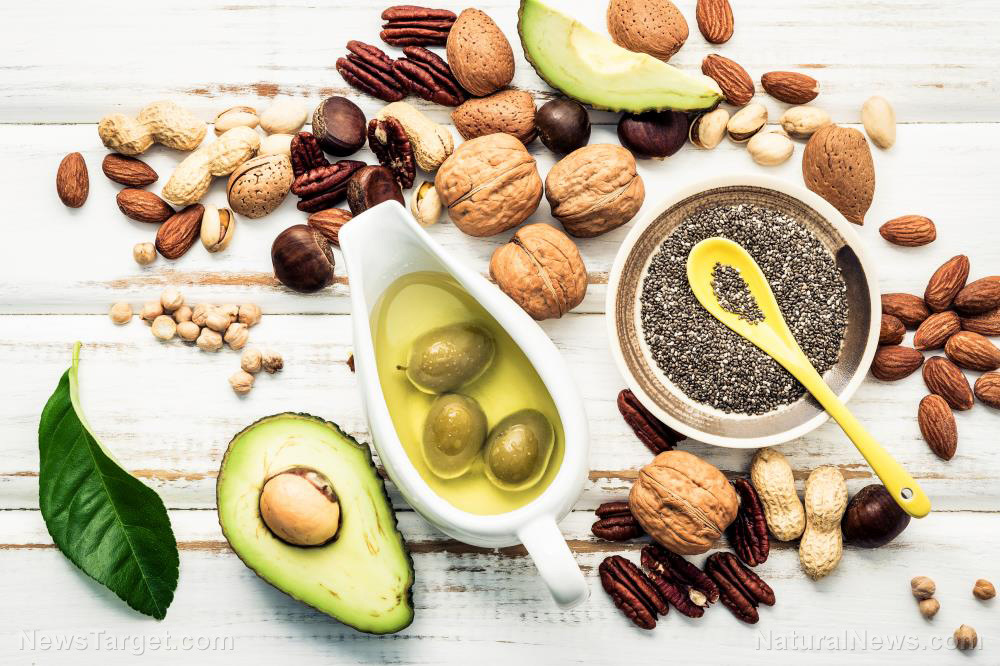People with heart disease can substantially reduce their risk of dying prematurely by closely adhering to the Mediterranean diet
12/02/2018 / By Janine Acero

The Mediterranean diet is known to reduce the risk of developing stroke and heart disease. These benefits come mainly from the healthy fats, dietary fiber, and beneficial plant compounds found in this diet. But can it also help people who already suffer from heart disease?
Results from a study presented at the European Society of Cardiologists Society Congress show that people with heart disease can effectively reduce their risk of premature death by 37 percent if they closely adhere to the Mediterranean diet. These “extraordinary” results came from studying 1,197 participants for over seven years.
Another study highlighted the benefits of the Mediterranean diet in high-risk people for cardiovascular disease. This study followed 7,447 high-risk older adults — who did not have cardiovascular disease at the beginning of the study — for five years.
The participants were grouped into three: One group followed the Mediterranean diet plus four tablespoons of extra virgin olive oil every day; another group followed the Mediterranean diet plus an ounce of nuts every day; and the last group was assigned a standard low-fat diet. The groups did not count calories, restrict calorie intake, or increase their physical activity levels during the study.
Results showed that the two groups that followed the Mediterranean diet had their risk of heart attack, stroke, or death by cardiovascular means reduced by an impressive 30 percent. This intervention study shows that the Mediterranean diet actually caused the health benefits. The effects of the diet was characterized as “more powerful than any drug.”
Mother Nature's micronutrient secret: Organic Broccoli Sprout Capsules now available, delivering 280mg of high-density nutrition, including the extraordinary "sulforaphane" and "glucosinolate" nutrients found only in cruciferous healing foods. Every lot laboratory tested. See availability here.
Heart-friendly effects of the Mediterranean diet are linked to its polyphenol content
Polyphenols are plant compounds with anti-inflammatory properties – which protect against oxidative damage – as well as anticancer, antidiabetic, anti-obesity, and anti-allergic activities. Plants contain more than 8,000 known polyphenols, and several hundred are bioavailable in edible plants, fruits and vegetables.
A typical Mediterranean diet contains up to 1,500 mg of total polyphenols a day.
Research on the effects of polyphenols on longevity shows that high levels of these organic compounds in the blood decrease the chances of dying from all causes. In particular, a study published in the New England Journal of Medicine revealed that there is a 30 percent reduction in the combined risk of death by acute heart attack, stroke, or other cardiovascular means. High levels of polyphenols in the body also result in lower blood pressure, increased levels of beneficial high-density lipoprotein (HDL) cholesterol, and increased levels of nitric oxide, which relaxes blood vessels and is a biomarker of good cardiovascular function and healthy aging.
Fast facts on the Mediterranean diet
The Mediterranean diet consists mainly of plant-based foods. It is characterized by the high consumption of antioxidant and fiber-rich legumes, fruits, vegetables; sources of healthy fats such as olive oil, olives, avocados, nuts, and seeds; and at least three servings of fatty fish and seafood per week. This diet also encourages low to moderate amounts of wine with meals. (Related: 11 Delicious Key Ingredients that Make The Mediterranean Diet So Nutritious.)
To fully reap the health benefits of the Mediterranean diet, some natural health experts recommend taking polyphenol-rich supplements, such as artichoke, grape seed, lentil, olive leaf and walnut extracts.
Want to prolong your life the natural way? Follow Organics.news to learn more about the Mediterranean diet and other flavorful, colorful, and satisfying plant-based foods that offer a wide range of health benefits.
Sources include:
Tagged Under: cardiovascular health, fiber, food cures, fruits and vegetables, fruits and veggies, grocery cures, healthy fats, heart attack, heart disease, heart health, Mediterranean diet, natural medicine, natural remedies, nutrition, plant protein, plant-based foods, polyphenols, prevent disease, prevention, stroke




















